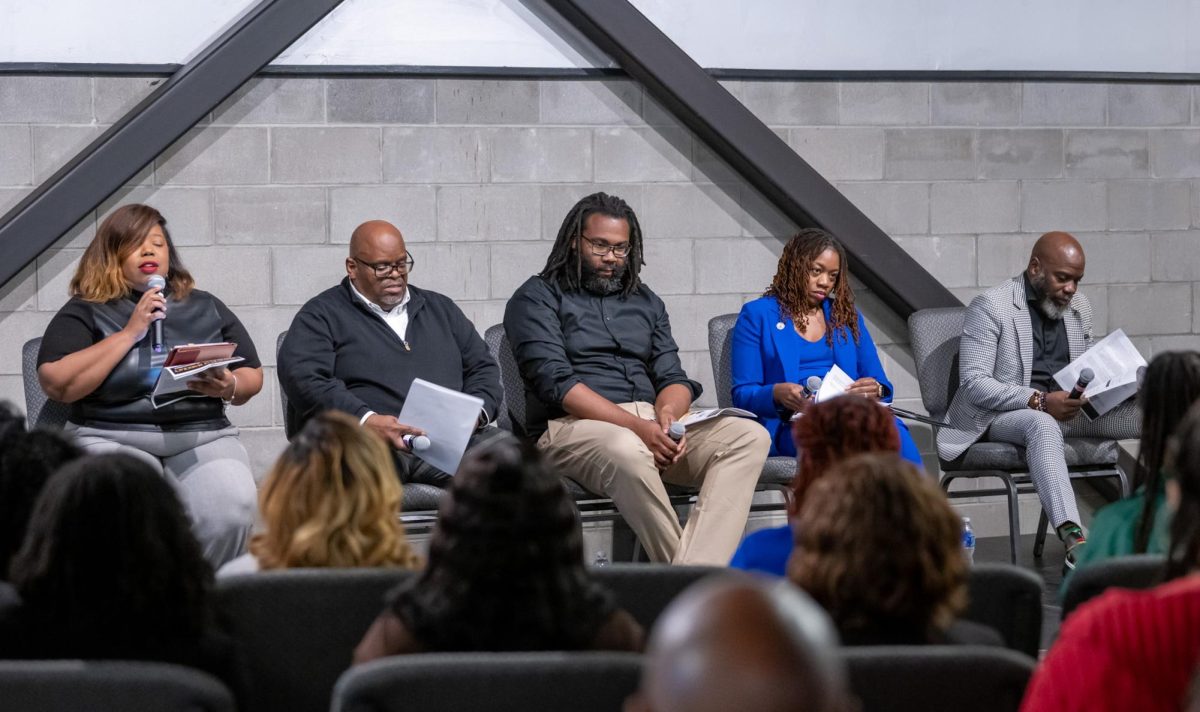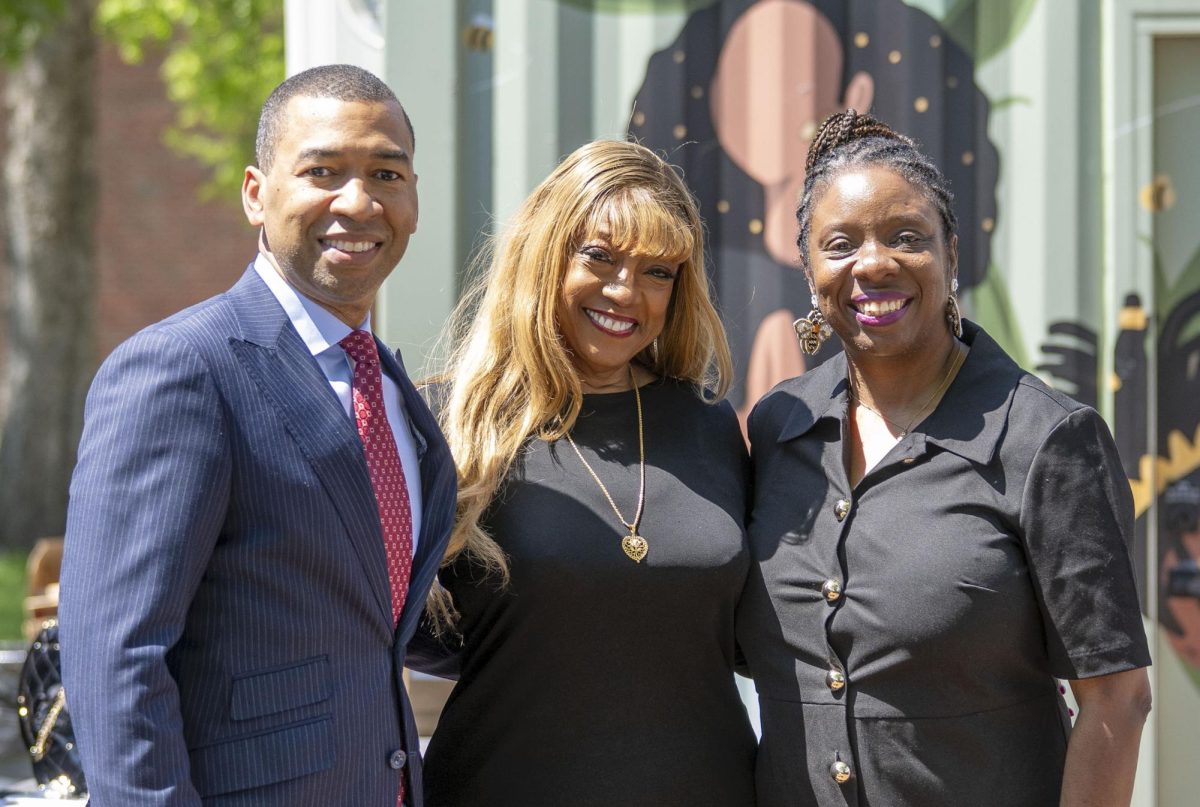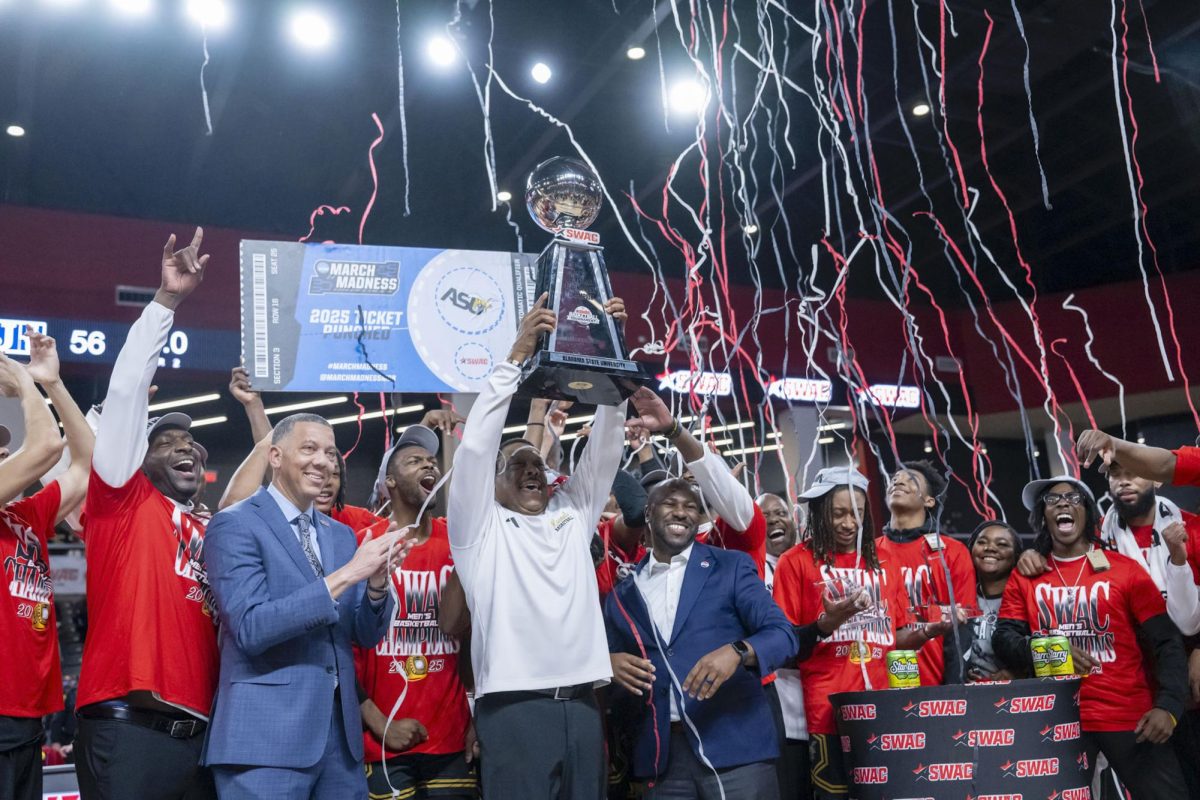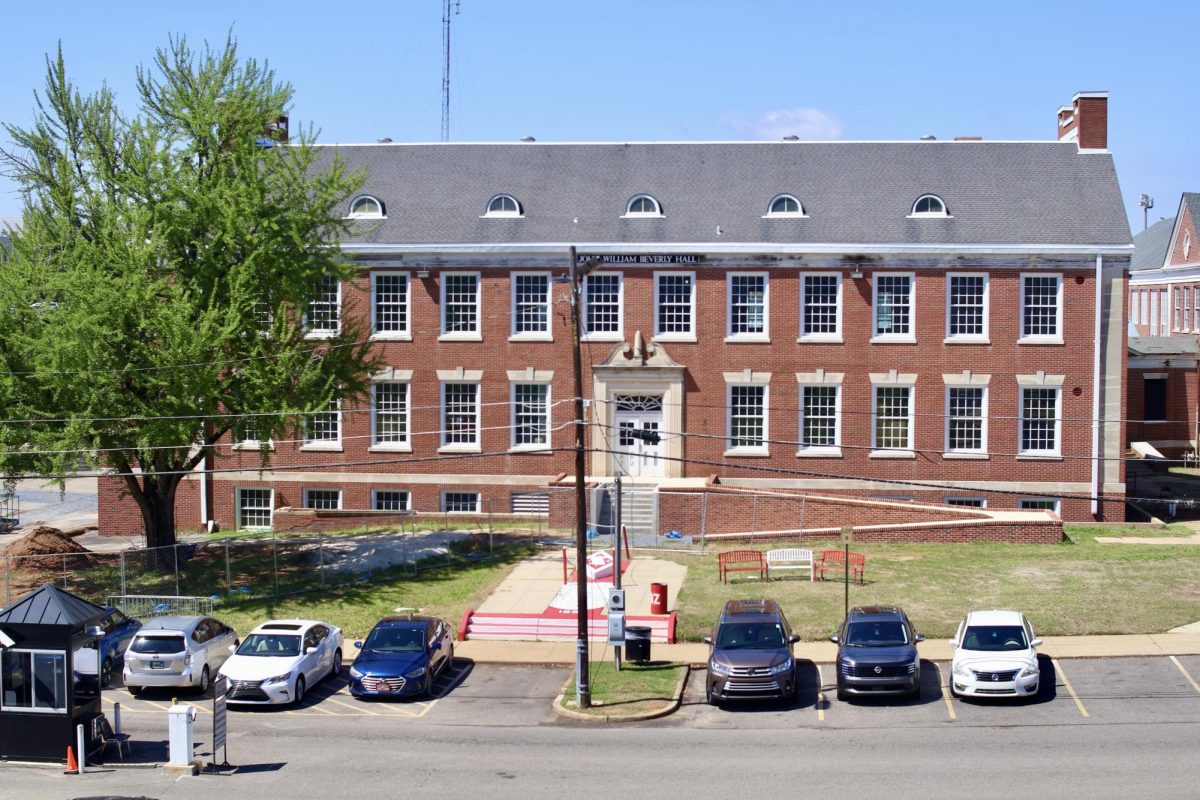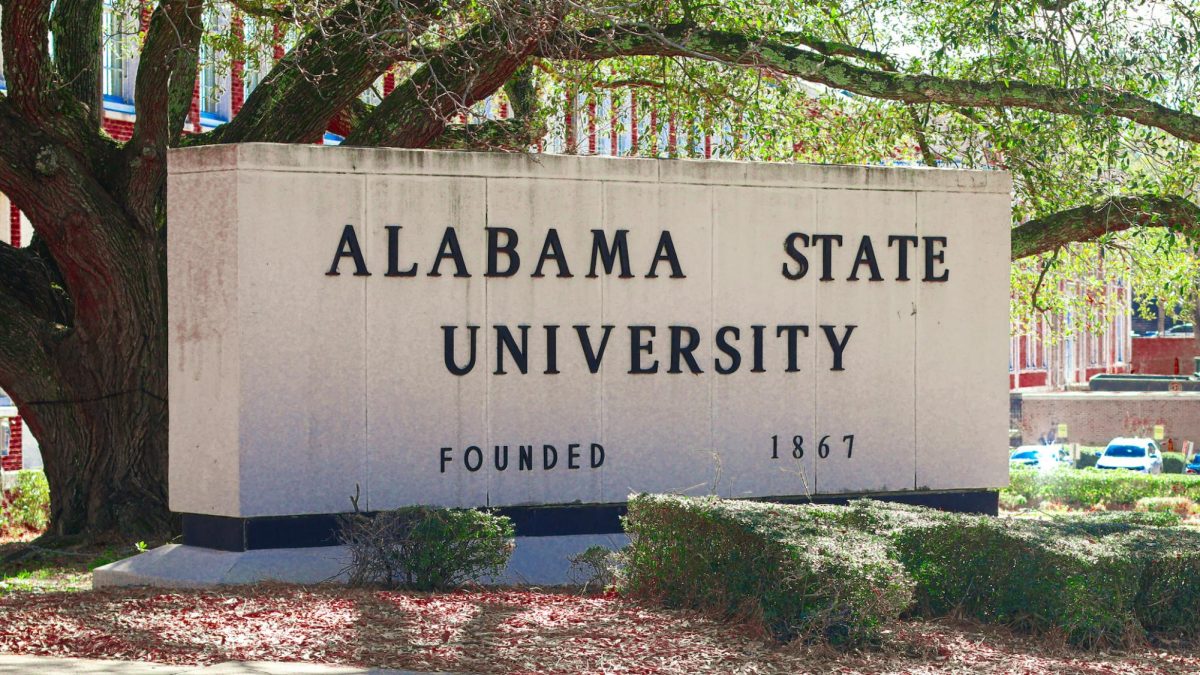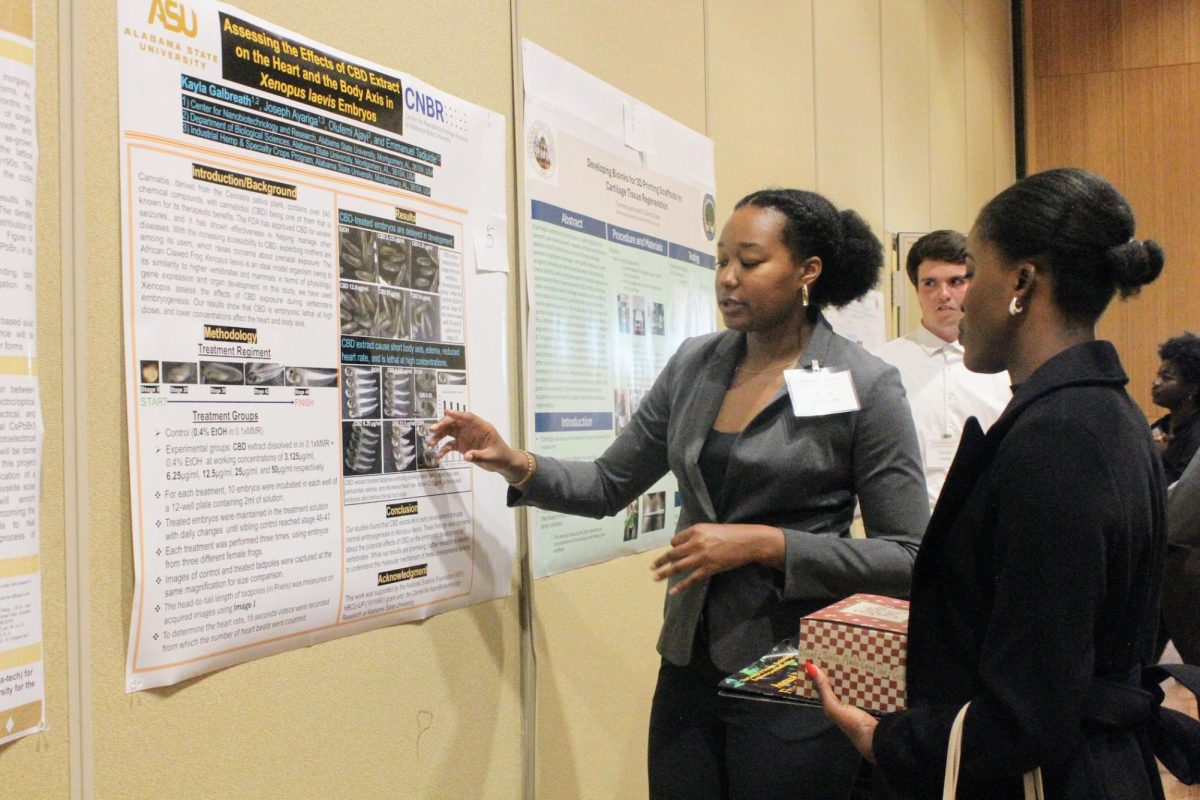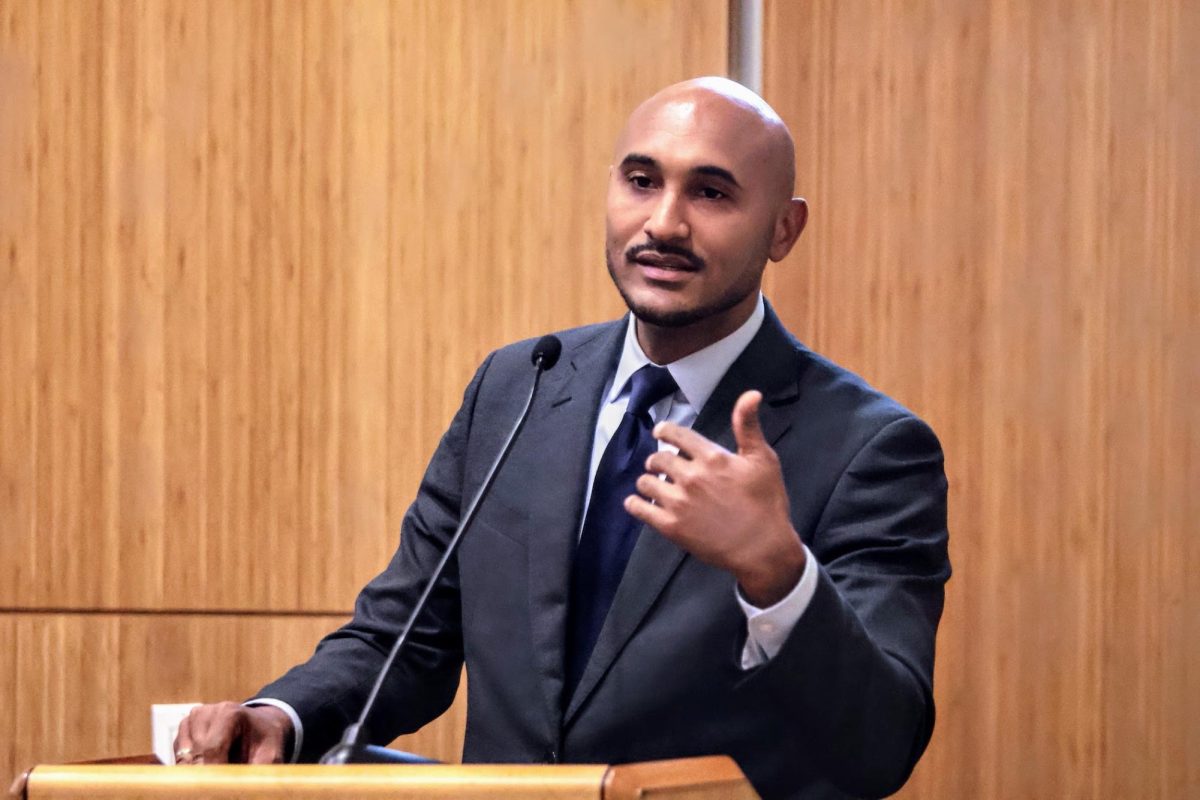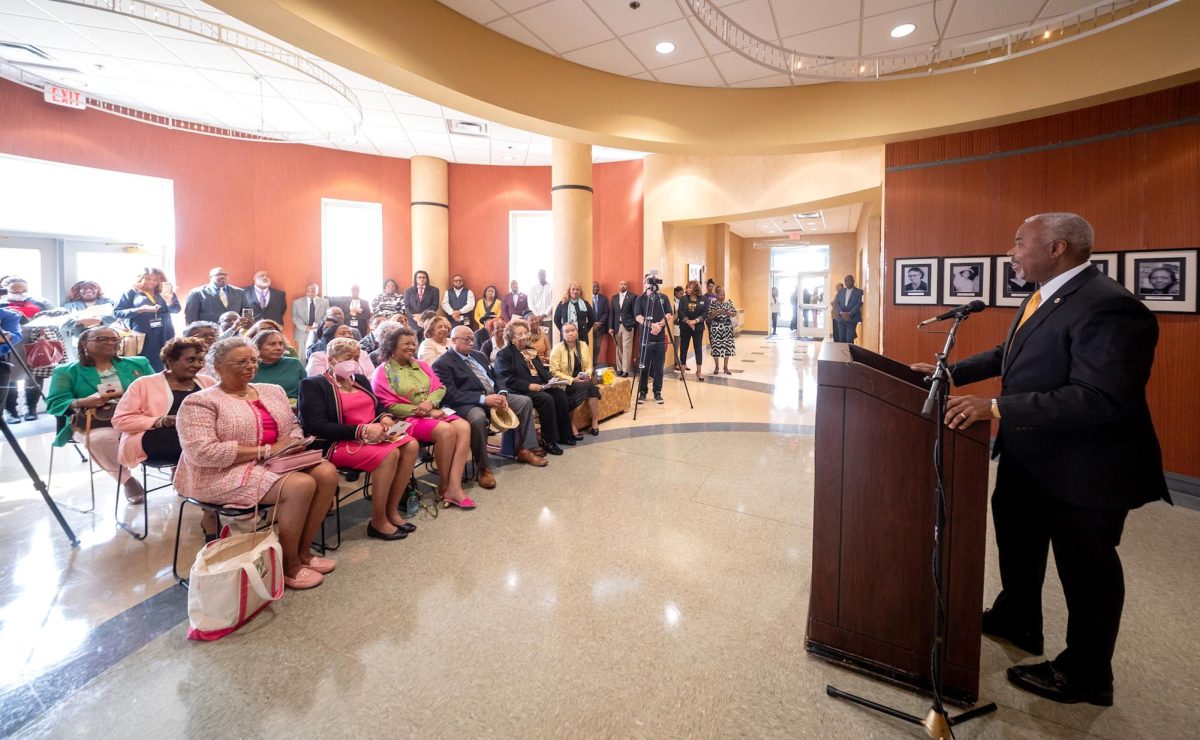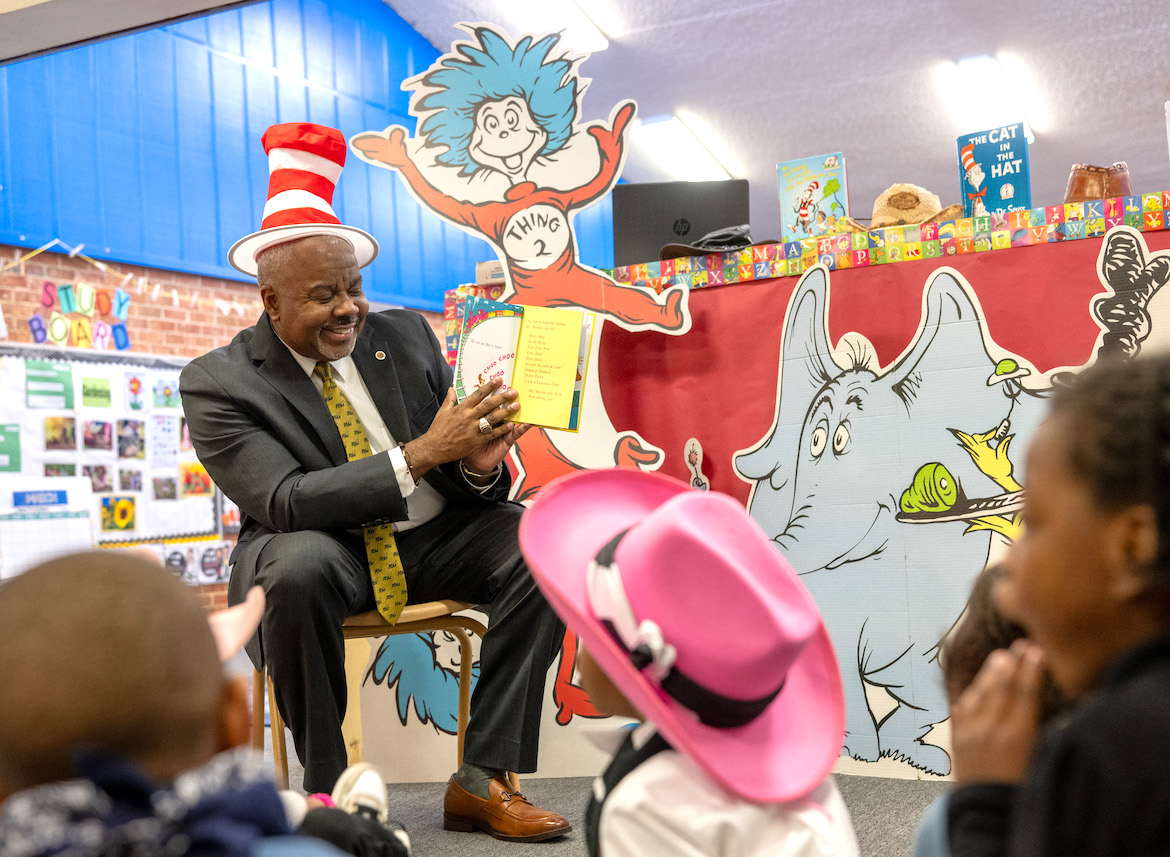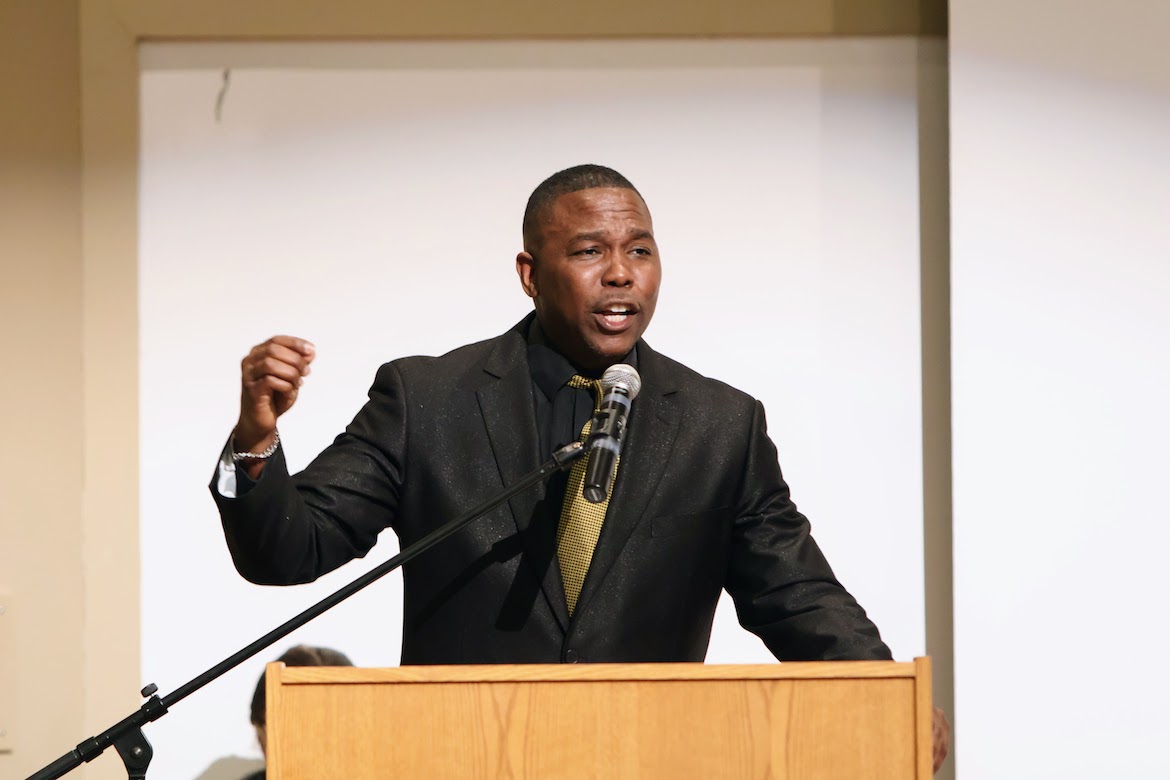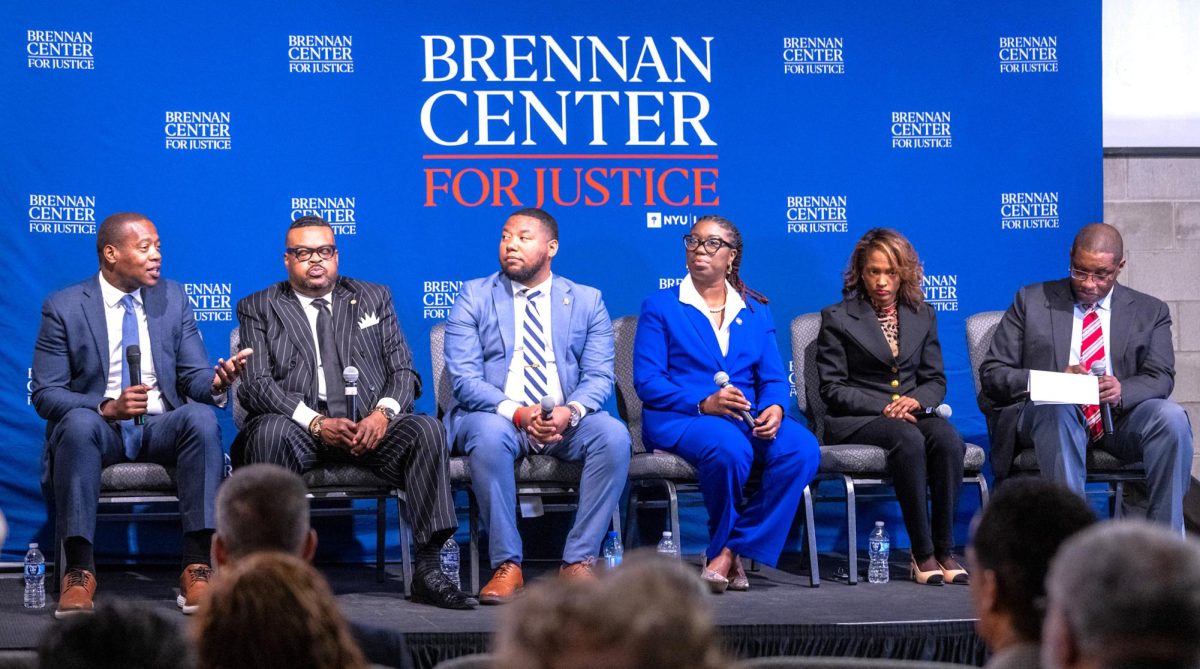The surrounding community as well as O’ Mother Dear herself mourns the passing of Joe A. Lee, Ph.D., the 11th president of Alabama State University. He died on Jan. 31, 2024, leaving the community in both mourning and admiration of the impact he had on the university.
“I was sad to read of Dr. Lee’s passing,” said Derryn Moten, Ph.D., professor and chairman of the university’s history and political science department. “I saw the WSFA ticker tape around 2:00 a.m. the morning after he died. Being a HBCU president is not without its challenges or its rewards. One must be stalwart and resolute. President Joe Lee was both.”
Moten and Lee worked together during Moten’s tenure as Faculty Senate chair. According to Moten, they had their disagreements, but it was never personal for either of them.
“I subsequently learned that Dr. Lee defended me against certain efforts to stifle me by some who objected to my pronouncements printed in the Montgomery Advertiser. He defended free speech,” Moten said.
He continued.
“Dr. Lee was approachable; he was not aloof. He routinely walked from the president’s residence to his Councill Hall office where he invariably would have conversations with students and staff [which includes faculty]. I do not recall any singular act that he did to “help the history [and political science] department except I believe Dr. Lee appreciated the history of ASU which means he appreciated history. I think Dr. Lee will and should be remembered as someone who helped grow the university and as someone who believed in its mission.”
Director of Bands James B. Oliver, Ed.D., was very sad at the news of Lee’s death. Prior to Lee’s death, Oliver would often call Lee and according to Oliver, Lee was always happy to hear from him. The week before Lee died, Oliver called to wish him a Happy New Year.
“He was really a president where you could talk to him about anything,” Oliver said. “He didn’t just sorta wave you off or anything like that. He took the time to look into it if you had any issues or if you needed something.”
During his tenure, Lee provided the band with new uniforms and paid for buses for the band to go to Jackson State University.
“He was familiar with the Jackson State game and everything,” Oliver said. “He helped out with transportation and was just a great man.”
Lee and Oliver were also fraternity brothers in Kappa Alpha Psi Fraternity, Inc.
“When he came and we shared a conversation, I found out he was a Kappa. I don’t know where he actually pledged, but once you find out you have a brother here, you want to meet him and greet him, and let him know that we’re here to support him.”
According to dean of the LWLC Janice Franklin, Ph.D., Lee was at his core a very warm and approachable administrator.
“He was a person willing to work with all areas of the campus for their improvement under his tenure.” Franklin said. “We were especially appreciative in the Levi Watkins Learning Center for the support he gave us during the renovation planning for the LWLC. He also gave support to the National Center for the Study of Civil Rights and African-American culture on our campus.”
Lee was appointed as president in August 2001, and Catherine Wright, M.B.A., was one of the people instrumental in Lee’s selection. At the time, Wright was the chairwoman of the board of trustees at Alabama State University. According to her, it was Lee’s sincerity and deep commitment to students that influenced her decision to vote for him as the new president of the university.
“That was apparent and everything that embodied Dr. Lee,” Wright said. “He was all about the students. The one thing that Dr. Lee always talked about was friend-raising, and he really meant that. Everything that I think he touched or believed in was building strong relationships, both inside of the institution and outside of the institution. So he used the phrase often. If you can build friendships, then you can do all the necessary things from fundraising to providing a campus environment that was positive in every aspect. And so I think he would want to be remembered for, one, his love for his students and for the institution.”
Wright believes that one of Lee’s greatest accomplishments was how he led the university after the ruling of Knight v. State of Alabama lawsuit. A lawsuit that challenged the structure of and allocation of resources under Alabama’s system of public higher education, charging that the State of Alabama and the other defendant institutions have not fulfilled their obligation to remedy vestiges of past de jure segregation that remain in the current system.
“That was the lawsuit that brought additional funding to Alabama State. So we were able to build new buildings. So and to travel to New York to share with the financial industry that ASU was solid and that its student population was growing, and that was a fact. So I think when you put those things together, it’s still going to come back to his commitment to building a stronger ASU to educate our students. And I think that was the center of everything that Dr. Joe Lee was about. So what’s his greatest accomplishment? I think that was growing the institution, both inside and out.”
Wright had equally nice things to say about Lee’s wife, First Lady Margie Ludgood Lee.
“Just a beautiful person, again, inside out. She had a calmness about her. That was her demeanor and she is still a people person. She loved the students. She loved mankind. She herself is a kind and gentle person, just like Dr. Lee. She embraced their tenure there, not as a job, but as a family commitment.”
She continued.
“Dr. Lee loved his tenure at ASU. I don’t think he ever viewed it as a job, but as a commitment. And I’ve said that more than one time in my response to you. But I don’t think I’ve ever met a person that was more committed to making a difference for all the right reasons. He loved, loved, loved being President of ASU and watching the students who came to ASU, watching them succeed in their educational goals. And I think he made certain that the students knew that and he could easily put himself in their shoes. And I think that’s important when you lead any organization is to understand how those whose lives you impact or are affected by decisions that you make. And I think more than anything, he wanted to make good decisions. And he gets his tenure there doing his best to do so. And I’m proud that I was instrumental in being a part of the leadership that brought him there. And I think he was extremely proud to serve the students, the faculty, the community, staff, and the community of ASU. I think those were some very proud years in First Lady Margie’s lives. They embodied in my mind, all that a community could ask for in their leadership there. So I’m very proud to have been a part of that, of his team, on his team with him. So that’s how I will remember Dr. Lee. Great smile, just his love for mankind. I think that’s who he was.”
Lee served the university’s from 2001 to 2008. In that time, he relocated the university bookstore to a more accessible location, worked with recruitment and admissions to increase student enrollment to 6,000 students and put in effort to increase university’s national visibility.
“Dr. Joe Lee was an instrumental leader at Alabama State University, serving as our 11th President for seven years. Dr. Lee’s legacy will reflect him as an experienced leader, scholar and a dedicated educator,” current university President Quinton T. Ross, Jr., Ed.D., said. “Dr. Lee will be deeply missed, but he will forever be threaded in the DNA of O’ Mother Dear. Not only was he a mentor, but he was also a friend.”




